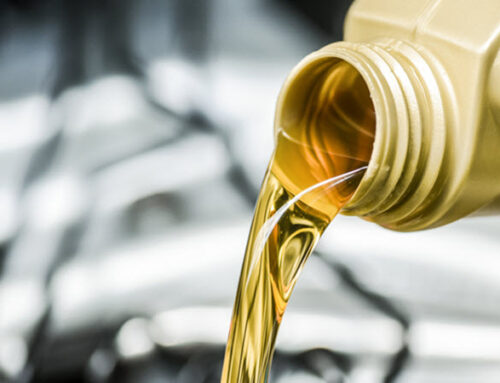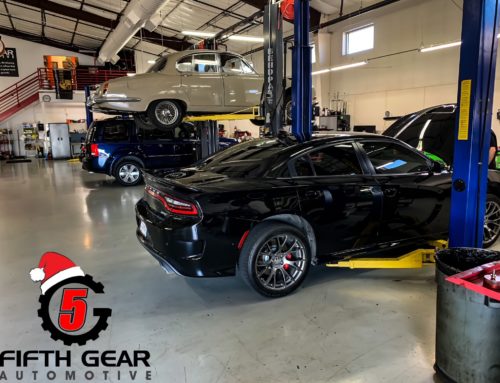WHY DOES MY CAR NEED AN OIL CHANGE?
Cars need oil changes periodically to function. Oil is a lubricator for the moving parts of your vehicle’s engine. Think about all the internal components creating friction inside a car engine. That’s a lot of heat! Oil carries heat away from the combustion chamber and protects the engine from carbon and grime build-up.
Overtime, the oil itself degrades and piles onto the mechanical parts if it is not changed periodically. As grime accumulates in the oil, the oil becomes less liquid and more solid, slowing down the cooling process. Neglecting old oil will strain and overheat your engine. Just like metal-to-metal brakes are ineffective, solidified oil will not prevent the metal components in your car from grinding together and damaging the car.
How often should I change my oil?
Every manufacturer has its own recommended maintenance schedule, which can be viewed in the vehicle handbook. It’s best to ask your local auto repair shop for their recommendations, which will differ by vehicle make and year. If you tend to take long drives, you will need to change your oil sooner than someone who only goes a few miles a day. In general, it’s best to change your oil around every 5,000 miles to be safe. Staying ahead of the game and taking your car in for maintenance a little early is always recommended if you want to preserve your vehicle long-term.
What kind of oil does my car need?
Conventional oil is the standard oil that’s been used by the auto industry since the beginning. It’s lower-priced than synthetic oils and doesn’t last as long since heat breaks it down faster.
Synthetic oil is meant to last longer and resist breakdown longer in harsh temperatures. It’s found in modern vehicles that use turbochargers as an additional power supply, and synthetic oil protects their components better since the chargers need higher heat resistance. It must be replaced every year but tends to last every 10,000-15,000 miles.

Information courtesy of Paul Campanella’s Auto & Tire Center!







